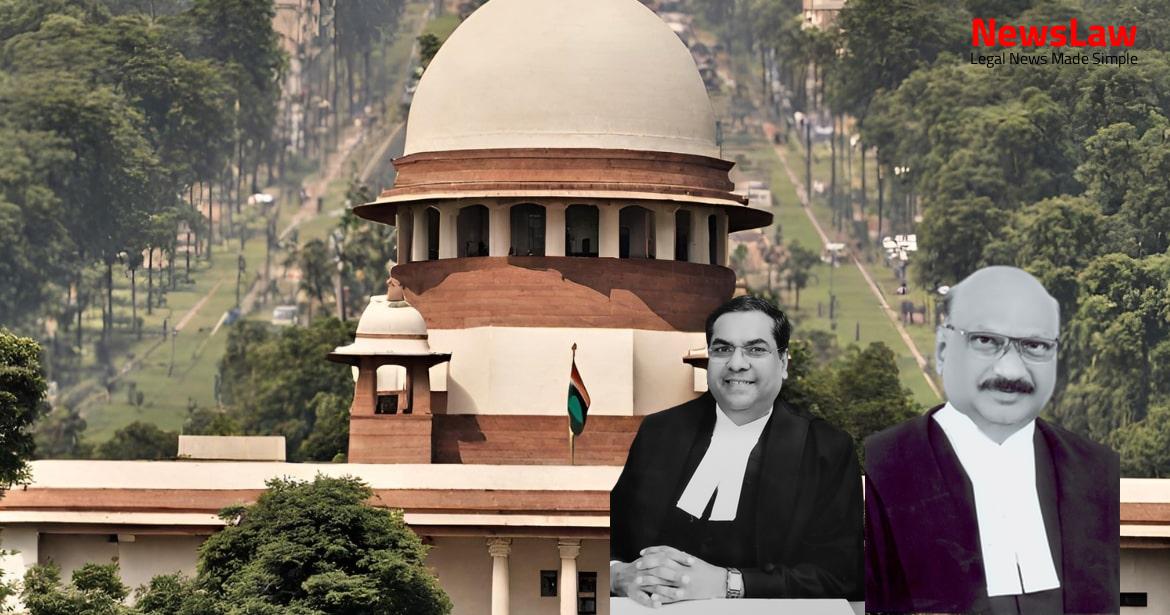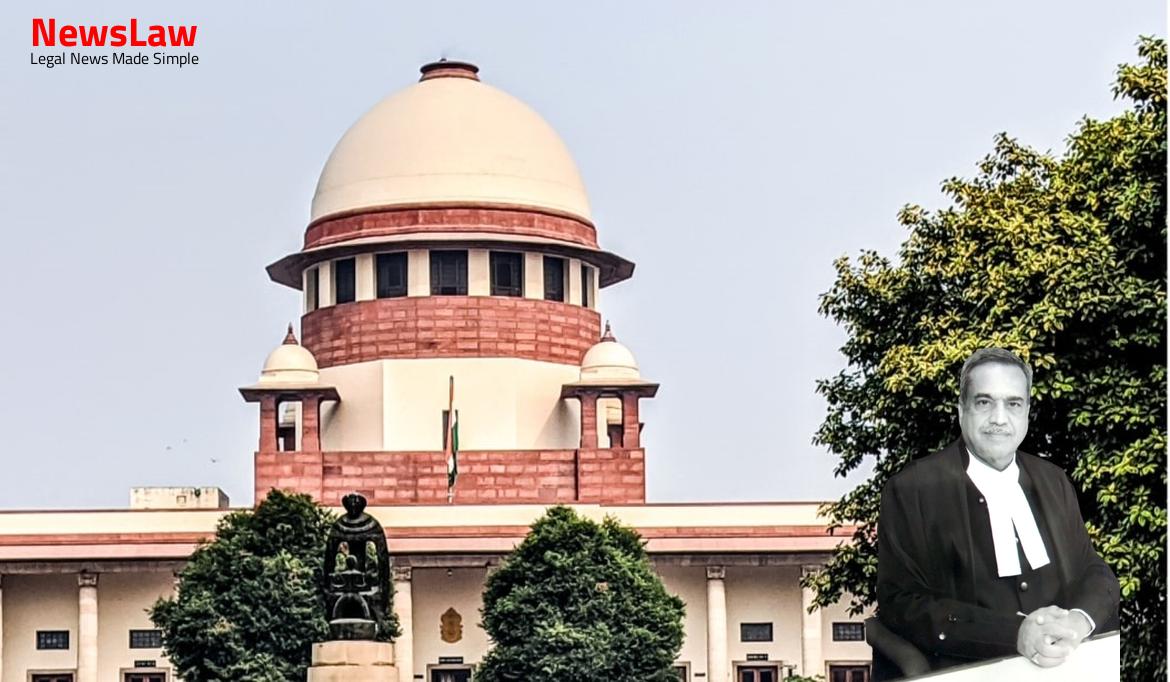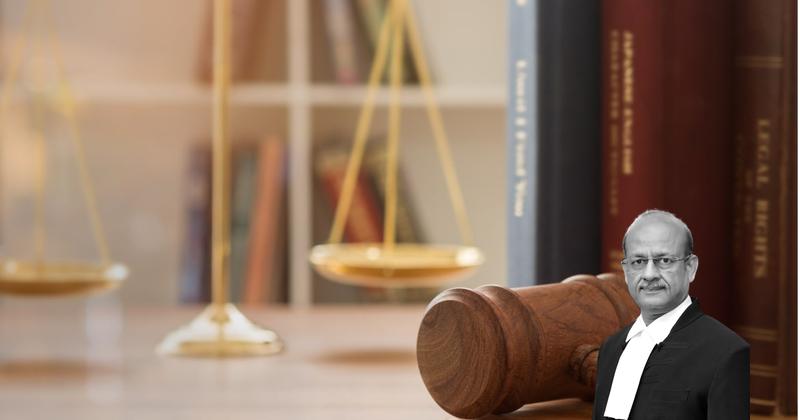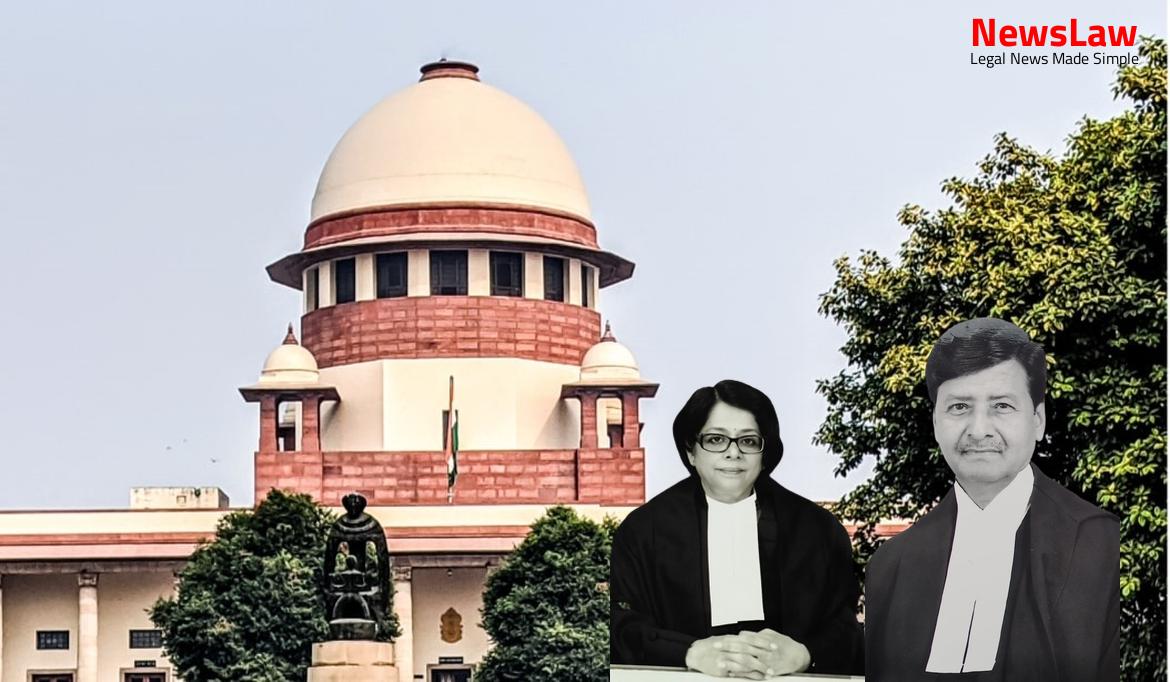The Supreme Court of India delivered a significant judgment on disciplinary control involving the High Court and judicial officers. The case addresses the necessity of conducting a departmental inquiry and the power to dispense with such inquiries. This summary explores the implications of the court’s ruling and sheds light on the legal intricacies at play.
Facts
- The High Court addressed a letter to the District and Sessions Judge, Purnea to submit a report on the incident involving judicial officers Hari Niwas Gupta, Komal Ram, and Jitendra Nath Singh.
- The hotel bill submitted by Komal Ram to support his claim was found to be fabricated based on handwriting analysis and his signature.
- The Ministry of Home Affairs informed the High Court that the mobile phones of the judicial officers were off, with traces near Nepal during the purported stay in Purnea.
- A news report indicated that the officers were apprehended in Nepal with Nepali women at a guest house in Biratnagar on 26 January 2013.
- The officers denied leaving India for Nepal during the inquiry, with Komal Ram claiming he was in Purnea during the period.
- A follow-up news report expressed regret over erroneous information, suggesting bias from the Superintendent of Police, Araria.
- It was noted that the hotel in Purnea where Komal Ram claimed to have stayed was not of the standard expected for a judicial officer of his rank.
- The Registry note lacked authenticity as it did not contain any date or signatures recording the reasons for dispensing with the inquiry.
- The High Court was unable to provide any material showing reasons for dispensing with the disciplinary proceedings.
- The order of dismissal for judicial officers dated 12 February 2014 was set aside due to failure to record reasons for dispensing with the inquiry.
- The Division Bench granted liberty and discretion to the High Court after setting aside the dismissal order.
- The Full Court contravened clause (b) of the second proviso to Article 311(2) by not recording reasons for dispensing with the inquiry when recommending dismissal of judicial officers.
- The Standing Committee resolved that the judicial officers should be suspended and dismissed without an inquiry in accordance with the relevant rules.
- The Full Court accepted the recommendation of the Standing Committee on 10 February, 2014, for the dismissal of judicial officers by invoking the relevant provisions of the Constitution.
Also Read: Judgment in the Case of Sundew Properties Ltd. v. TSERC & APTEL
Arguments
- Division Bench held that departmental inquiry was necessary and could not have been avoided.
- Counsel refers to the Division Bench’s decision in support of this argument.
- Emphasis on the importance of conducting a departmental inquiry in such cases.
- The power to dispense with an inquiry under clause (b) of the second proviso to Article 311 is exclusive to the Governor.
- The Governor must provide in writing the reasons why it is not reasonably practical to hold an inquiry.
- Learned counsels for Komal Ram and Jitendra Nath Singh raised the contention regarding the High Court’s power to dispense with the inquiry.
Also Read: High Court Judgment on Renewal of Mining Leases: State of Odisha vs. Thakurani Global Processors
Analysis
- Quashing of order of dismissal under Article 311(2)(b) by the Governor was deemed invalid, as the High Court has the authority for appointments and promotions in the subordinate judiciary.
- Power to dispense with an inquiry for valid reasons recommended to the Governor is within the High Court’s competence.
- The Division Bench clarified that the quashing of dismissal orders does not confer unconventional rights but clarifies obvious consequences.
- High Court’s control over appointment, promotion, and disciplinary proceedings in judicial service subordinate to District Judges.
- Not recording reasons for dispensing with departmental inquiry led to earlier dismissal orders being set aside.
- High Court’s power to invoke Article 311(2)(b) to set aside dismissal orders was affirmed, subject to recording reasons and following prescribed procedure.
- The High Court’s authority to decide on inquiry necessity, if the situation demands, was upheld.
- Liberty granted to High Court to invoke Article 311(2)(b) is not a mandate for post-dismissal order reasons, as it pertains to potential future actions.
- Division Bench’s ruling did not prohibit the High Court from reassessing the situation and invoking Article 311(2)(b) with valid reasons if needed.
- Dismissal orders were annulled for lack of reasons for skipping departmental inquiry, allowing for fresh consideration by the High Court.
- Clause (2) of Article 311 provides that a person can only be dismissed, removed, or reduced in rank after an inquiry where charges are informed and a reasonable opportunity of being heard is given.
- Exceptions to conducting an inquiry under clause (2) are mentioned in the second proviso.
- Clause (b) of the second proviso allows for dismissal, removal, or reduction in rank without an inquiry if it is not reasonably practicable, subject to a written satisfaction.
- The obligation to record reasons when using clause (b) of the second proviso is mandatory, as ruled in cases like Jaswant Singh v. State of Punjab and Union of India v. Tulsiram Patel.
- The authority must be satisfied from the material presented that holding a disciplinary inquiry is not reasonably practicable before invoking clause (b) of the second proviso.
- The decision to dispense with an inquiry should not be taken lightly, arbitrarily, or for ulterior motives, as stated in Tulsiram case.
- A Division Bench found that satisfaction in writing was not recorded before dismissing judicial officers in a specific matter.
- Clause (1) prohibits dismissal, removal, or reduction in rank by a subordinate authority, with exceptions listed in the proviso including criminal conduct leading to conviction or reasons of security of the State.
- The clause (b) exception requires recording reasons in writing when it is not reasonably practicable to hold an inquiry.
- Reliance is placed on definitions of ‘practicable’ from Oxford English Dictionary and Webster’s Third New International Dictionary to understand the term ‘reasonably practicable.’
- The argument misinterprets the judgment in State of West Bengal v. Nripendra Nath Bagchi, which actually supports the control of the High Court in disciplinary matters.
- The history of Articles 233 to 236 of the Constitution emphasizes that ‘control’ includes disciplinary control for the independence of the subordinate judiciary.
- A precedent in Reena Rani’s case emphasizes the High Court’s power for reinstatement and consequential benefits.
- The law mandates recording reasons in writing before dismissing an individual under clause (b) of the second proviso to Article 311(2).
- The judgments in various cases like Chief Security Officer v. Singasan Rabi Das and Reena Rani v. State of Haryana and Others do not support the contention raised by judicial officers for disciplinary control.
- The term ‘reasonably’ is defined by Webster’s Third New International Dictionary to mean ‘in a reasonable manner: to a fairly sufficient extent.’
- The opinion of the High Court is crucial, as seen in Nripendra Nath Bagchi, where the Governor must consider it in matters of disciplinary control.
- The judgments in Tarsem Singh and Tulsi Ram Patel shed light on control over the conduct and discipline of judges.
- The court clarified that it had expressed no opinion on the merits of the allegations made against the three judicial officers.
- No order was given as to costs.
- The court stated that it would not go into the merits of the specific contention raised and left the issue open for future consideration.
Also Read: Arvind Kejriwal vs. Directorate of Enforcement: Interim Bail Granted by Supreme Court of India
Decision
- Appeals dismissed and stay order vacated.
- Respondents must proceed in accordance with law as per Division Bench judgment.
- State of Bihar and High Court can examine the contention raised by appellants – judicial officers.
- Counsels for appellants have reserved their right to challenge the order when passed.
Case Title: HARI NIWAS GUPTA Vs. THE STATE OF BIHAR
Case Number: C.A. No.-003105-003105 / 2017



